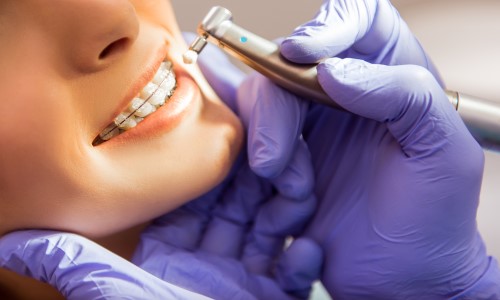Orthodontics is a branch of dentistry specializing in diagnosing, preventing, and treating jaw, face, and bite irregularities. This condition can affect your smile’s appearance or even health in many cases. Orthodontic treatments will help to improve not only your smile but also your quality of life.

Benefits of Orthodontics
1) Corrects disorders of the jaw, teeth, and face.
Orthodontic treatment can help to correct several conditions, including:
- Overbite (when your upper teeth are too far forward) can cause problems when you eat or may even be uncomfortable.
- Underbite (when your lower teeth are too far forward), which has the same effect on your ability to eat comfortably or adequately speak.
- Cross-bite where one tooth is in front of another instead of directly over it, resulting in problems with chewing food properly or even pain.
2) Improves overall health.
Many people consider orthodontics an aesthetic procedure, but there is much more involved than just improving your smile.
- Teeth that are poorly aligned can affect the health of your teeth and gums, leading to decay and gum disease, which can cause pain and infection.
- Having gaps between your teeth or misaligned jaws can make it more difficult for you to chew correctly, resulting in malnutrition, weight loss, or even diabetes.
3) It Can save you money in the long term.
Dental problems caused by misalignment when treated early can be much less expensive than if they are not treated at all. Without treatment, however, you could be more susceptible to:
- Gum disease can weaken your teeth and lead to costly dental treatments.
- Tooth decay makes your smile less aesthetically appealing and a health risk.
4) Can help with self-esteem.
Many people are uneasy with the idea of an orthodontist or their appearance; however, orthodontics can improve your smile and increase confidence and self-esteem.
5) Perfect for kids and teenagers.
Orthodontics is an ideal treatment for children of all ages, not just adults! Having braces can help to correct problems with your teeth before they get worse, which will mean less time in the dental chair.
6) Can be used as a long-term solution or to make short-term changes.
Some patients only need orthodontic treatment over a short period, while others who are ready to get straight teeth are looking for permanent results. Several options depend on what you want to achieve.
7)Improves Digestion.
When your teeth are correctly aligned, it allows you to chew food more efficiently and stimulates saliva production in your mouth, which is needed for proper Digestion. It can also help prevent acid reflux or heartburn.
8) You can eat what you want to!
Many people are limited in their food while wearing braces, but not anymore. With modern orthodontics, you can eat all your favorite food while enjoying a perfect smile that will last a lifetime! Orthodontics is an ideal treatment for children of all ages, not just adults! Having braces can help to correct problems with your teeth before they get worse, which will mean less time in the dental chair.
9)Reduces tooth grinding.
If you have a habit of grinding your teeth at night, have TMJ problems, or suffer tooth pain due to clenching and waking up with headaches, an orthodontist can provide a solution. It can be used as a long-term solution or to make short-term changes.
Who is orthodontics for?
Orthodontics may be right for you if you have concerns about any of these problems:
- Crooked, crowded or protruding teeth may cause pain when eating, speaking, or smiling, which can affect your overall quality of life.
- Gaps between your front teeth could lead to issues with chewing food even or adequately embarrassing when speaking.
- The appearance of your face when smiling is due to teeth that do not fit together. It can be minimized with proper orthodontic treatment.
Orthodontics, also known as Orthognathic surgery, is a surgical specialty dedicated to diagnosing, preventing, and treating diseases affecting the jaws, lips, and facial muscles. Treatment options include braces or clear aligners for straightening teeth and correcting misalignment related to jaw disorders such as obstructive sleep apnea or TMJ problems. The orthodontist’s job is to consider all treatment options and examine and diagnose any related conditions that might be present.